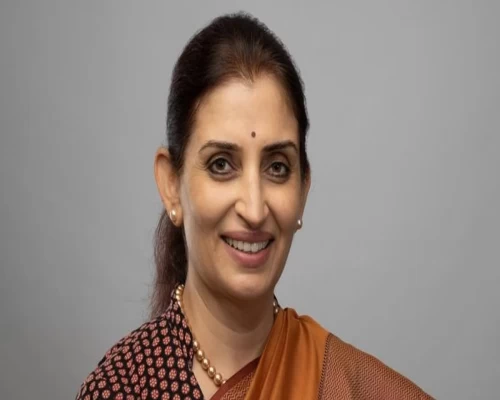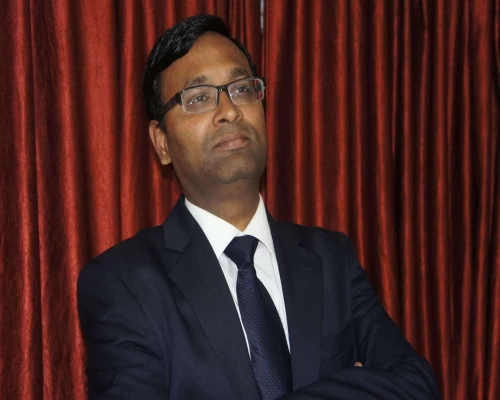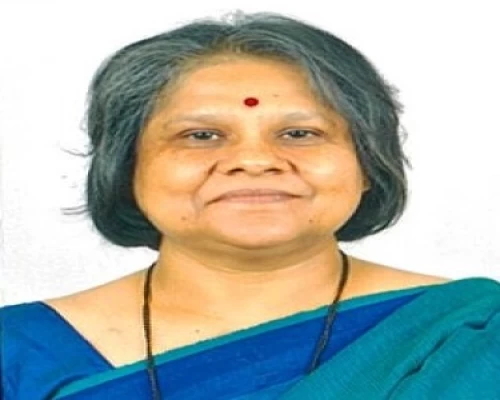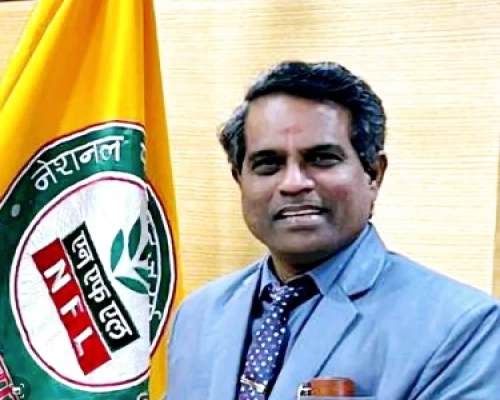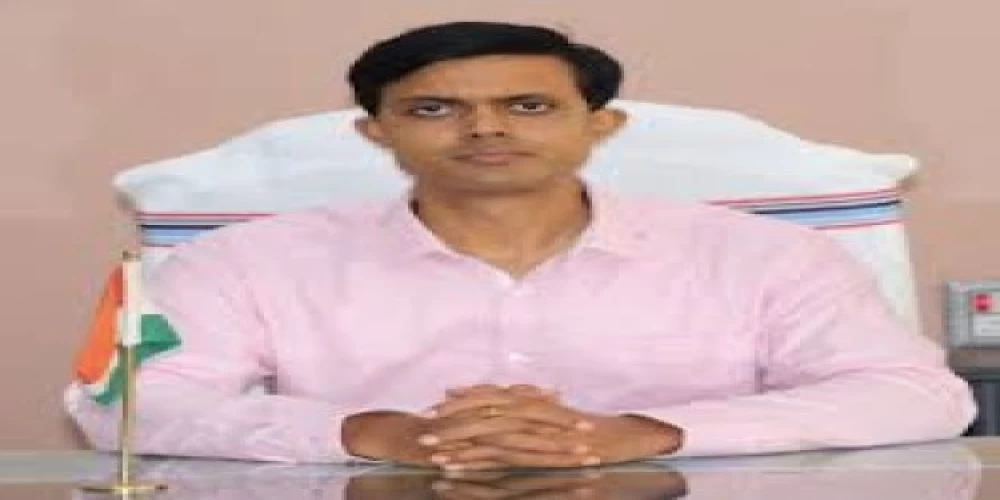
Needless to say that Indian Civil Services are among the best in the world. A Civil Servant gets multiple opportunities to leave a positive impact on people’s lives. “The unprecedented Covid-19 crisis has taught me that no matter how tough the situation is, if you are able to keep your calm and motivate your team, you can get through any situation. As a Civil Servant, I firmly believe that being a part of Civil Services means a lot. One can significantly impact people’s lives in a positive manner,” said Sushant Gaurav, IAS and Deputy Commissioner, Simdega, Jharkhand, in an exclusive conversation with Naina Jha of Bureaucrats India.
How has the Aspirational Districts Program given a new dimension to good governance?
The Aspirational Districts Program, which was started in 2018, has all components of good governance. It is digitally monitored and reviewed. Data are entered digitally. So there is no chance of hiding facts and transparency has always been there. Lately, the data which we enter have been transferred to the block level. So now even if I wish to change the data, I can’t do it. No one can fudge data. Data come from the ground level and there is no scope for fudging, it is the first thing from where transparency starts.
Second thing is data analysis. We re-organise our team very efficiently through data analysis. One of the major aspects of good governance is how we extract maximum output from our team members. There is a factor in the ADP report of Good Governance that evaluates whether people in the government or bureaucracy are being efficiently and effectively used or not. Also monthly competition is being held among the Aspirational Districts and there is a provision of incentives as well. For that, we assign targets to each team member in a planned manner to get the best output. So I can say, we implement the Aspirational District Program by including all factors of good governance.
Good work has led to several good works with transparency. How can we ensure their sustainability?
As I said, since the data is being entered as a repository, whoever is coming next to me or any team member can start from the point where the previous member left. Data are self explanatory. They don’t need any initial training. Also NITI Aayog provides us a magazine consisting of best practices from time to time. We keep our team engaged as we assign them to analyse that magazine. The most important members are Aspirational District Fellows (ADF) who study the best practices and come up with a suggestion on how we can customize and incorporate those practices in our district. We implemented the Solar Lift Irrigation Project. It was applauded all over and is being implemented in many districts of Jharkhand.
Many people including experts claim that whatever is being done under ADP is too little to be a realizable change in people’s ease of life at macro level. What is your take?
The word ‘too little’ is a little harsh for this project. We go to a place and listen to the demands of people. On the basis of their demands, we make a plan on the spot and start implementing it with whatever untied funds we get. So it is not too little. It is able to bring change in the society for good. The impact is visible to all.
How important are the core principles of Aspirational District Program -- convergence, collaboration and competition – in making this program successful?
These three principles have made this project successful. These core principles are one of the most important aspects which have brought good governance. There were so many indicators and competition. There was no time for fudging and manipulation. We were engaged in competing and providing the best. It is similar to sports. If someone is competing in a 400m race, then the athlete doesn’t have the time to take energy boosters after every 100 meter distance. You’ve to run as hard as you can. Else someone else will go ahead. We all are busy competing with each other with correct focus.
We have too many ongoing schemes. There were many critical gaps which we thought we could have filled if we had funds. This program has given us that opportunity to fill those gaps. ADP has enabled us to converge schemes in entirety with its full impact on ground. It gave us a vision to make schemes by collaborating and converging with other departments, by using our ADP funds and completing given targets.
How was your experience of implementing this program and what were the challenges?
Absolutely wonderful! I got two Aspirational District Fellows who had no media connection, no relation with the place or not connected with the government. So they didn’t have any concept of red tapism and they were always engaged in out-of-the-box thinking. The concept of ADF was amazing. Secondly, what makes this experience worthy is that we received Aspirational District funds even during critical times like Covid-19.
About challenges, I would say this is not forever. The program is for a short period of time. The expectations of people increase after this program and when suddenly it stops, then it is like a blow to both -- public and bureaucracy. When the program stops, however, routine schemes are functioning but extra work is missing because the district is devoid of those funds and Aspirational District Fellows. Since there are too many indicators, the start is slow because we have to work on every indicator which becomes challenging for the whole team.
This situation during the first and second wave of Covid-19 was very difficult for all of us. Will you please share some anecdotes?
Simdega is the border between Orissa and Chhattisgarh. So there were chances that Covid-19 spread during migration. It actually happened. Secondly, because big districts like Ranchi were facing a crisis during Covid-19, we couldn’t even ask for support. During the first phase, we had to manage on our own. The only way left out was that whatever resources we had, be it human or material, we had to work efficiently by using both resources. We used to sit in the office of Civil Surgeon in the District Hospitals and plan to deal with crises on a daily basis. The problem was only one -- people were dying due to shortage of oxygen. However, this one problem was multi faced. For instance, there was a shortage of ambulances and we somehow arranged it, but we couldn’t find drivers to drive them. There were various problems.
Our team was literally very tired by the end of the second phase of Covid-19 because of obvious reasons. So the challenge of motivating and encouraging them was another tedious task. To keep their spirits high, we used to organise prize distribution ceremonies in various aspects. We even started a Rural Covid Taskforce in each revenue village which included Chowkidars, Anganwadi Didis, ANMs, and Gram Pradhans. They used to go to villages and give vaccinations to people, create awareness among people to get vaccinated, detect people with mild Covid-19 symptoms and distribute home isolation kits among them. This experiment proved to be successful and helped us to put a break on the spread of Covid-19.
How has been your journey in bureaucracy so far?
My journey has been amazing. This service has enabled me to serve so many people with freedom. You have a team to translate your plans, vision on ground. It has been satisfying and interesting at the same time.
Your message for aspiring Civil Servants!
If you are joining with the feeling of serving the people, then you can succeed here. It will also help you to be satisfied with your work even during tough times because you are getting an opportunity to serve the people. But if you are coming here for the post or red beacon car, then you will get bored because your purpose will be achieved within a few years and you will have nothing to do more. But if your aim is to serve society, then you will be able to work with motivation till the end. So it is important to be clear about your own purpose for joining this prestigious service.


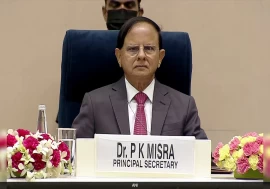
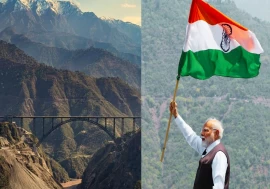
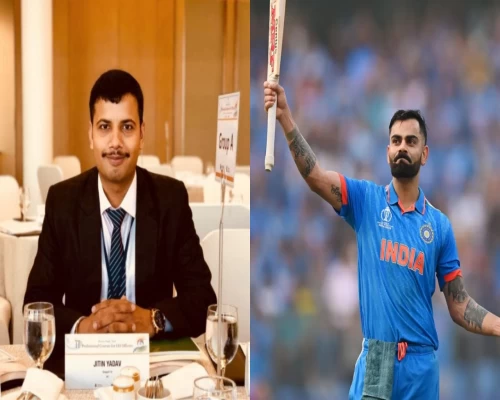
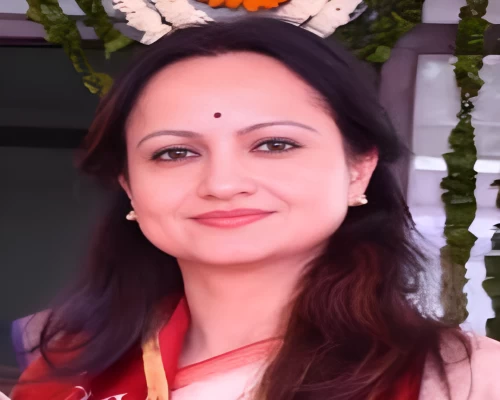
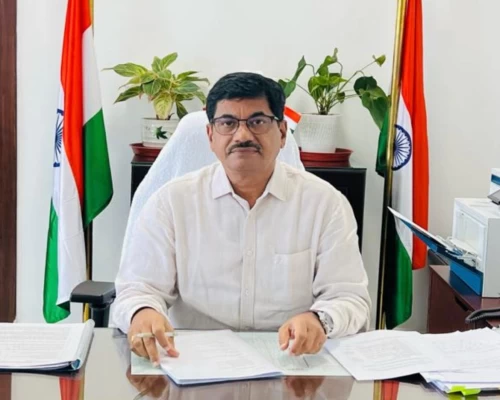
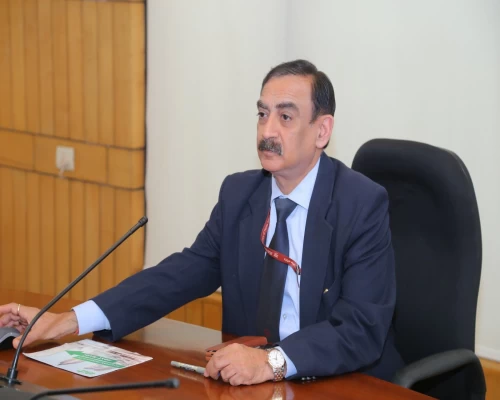
_500_x_400.webp)
